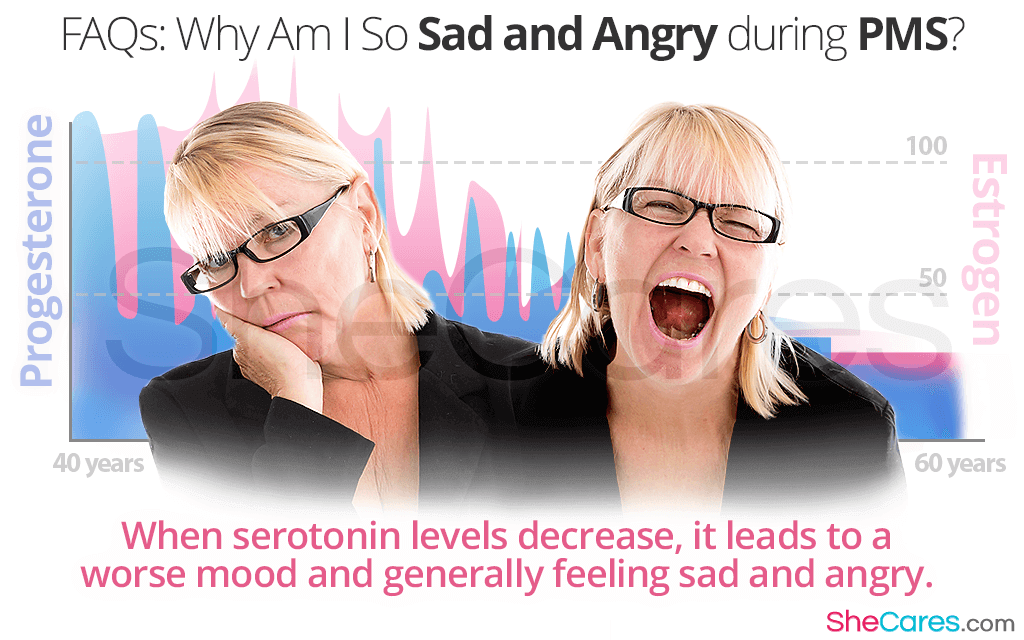Many women notice that they feel angry and sad, especially during the week before they have their period. This can be a symptom of premenstrual syndrome (PMS). It can be confusing and frustrating, particularly if you don't know about it or what you can do about it. Below, find some helpful information answering the most common questions about feeling sad and angry during PMS.
Is it Normal for PMS to Make You Feel Angry and Sad?
Women who suffer from frequent and substantial mood swings often feel isolated and abnormal. However, it is important to know that you are most certainly not alone.
PMS is known to affect around 85% of women. Most women can deal with the condition without too much difficulty, but unfortunately, 3 - 8% of women experience it in a more severe form known as premenstrual dysphoric disorder (PMDD). The symptoms of this can be managed in much the same way as PMS, usually with a physician's guidance.
How Do Hormones Affect Emotions during PMS?
PMS occurs 7 - 14 days before the first day of your menstruation. During this time, the hormones estrogen and progesterone are fluctuating. This imbalance interacts with the chemicals in your brain, specifically affecting the production of serotonin, a mood-regulating neurotransmitter. When serotonin levels decrease, it leads to a worse mood and generally feeling sad and angry.
Are There Other Factors that Make You Feel Angry and Sad?
The effects of this hormonal behavior can be intensified by certain lifestyle factors, including:
Stress
If you are going through challenges in your personal life, such as with employment, relationships, or studying for exams, it is likely that the stress these cause will aggravate PMS. In other words, the additional worries will increase the chances of feeling sad and angry.
Diet
The food and drink you consume can have a significant impact on mood. Those containing alcohol and caffeine can affect your energy levels, and alcohol in particular can cause you to become despondent and lethargic if over consumed. Fatty foods, as well as a diet low in vitamins and minerals can also be detrimental to temperament and worsen the symptoms of PMS.
Lack of exercise
It is widely acknowledged that exercising regularly causes a release of endorphins, a neurotransmitter produced in the brain that can induce a feeling of happiness and positivity. Conversely, studies have revealed that you are more likely to suffer from PMS if you do not exercise or are overweight.
What Can I Do with My Emotions during PMS?
Although PMS is unfortunately a fact of life for many women, its symptoms can be treated in a variety of ways. If you are always feeling sad and angry, try some of these coping methods:
- Strength and breathing exercises. Many women find that yoga, pilates, and tai chi are beneficial to their mood.
- Ensuring you get enough sleep. Tiredness can greatly impact your temperament, so it is important that you get around eight hours every night. If you suffer from insomnia, keeping a sleep schedule or diary may help.
- Communicate. Keep in mind that your friends and family care about you and will want to support you. It is important to talk about your feelings and seek their comfort if you are feeling sad and angry all the time.
Most women find it reassuring to know that they are not alone in going through the sometimes difficult and confusing symptoms of PMS. Feeling sad and angry all the time is doubtlessly troubling, but armed with the aforementioned facts, you should feel confident in knowing that there are reasons behind these mood swings and many ways to cope with these emotions.
